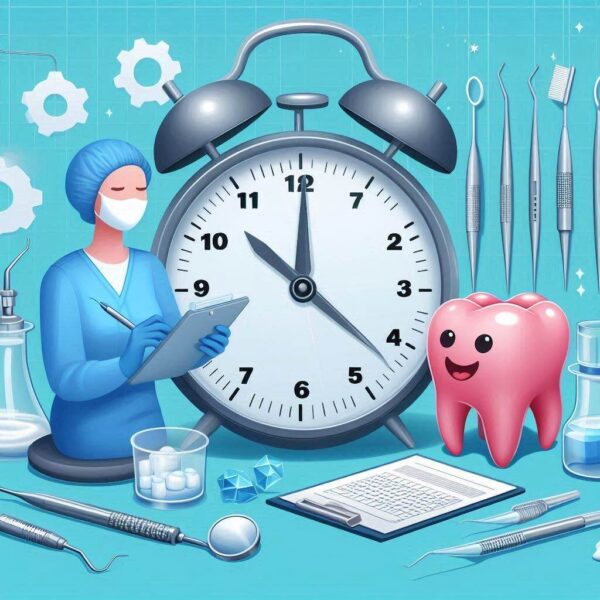
Dental hygienists are essential members of the dental care team, specializing in preventive oral health services. With a focus on patient education and professional cleaning techniques, they help individuals maintain optimal oral hygiene and prevent dental problems.
From conducting comprehensive oral assessments to performing teeth cleanings and providing personalized oral care instructions, dental hygienists play a pivotal role in promoting dental health and overall well-being.
Their expertise extends to diagnostic procedures, preventive treatments, and collaborative patient care, making them indispensable in ensuring healthy smiles for patients of all ages.
What Does A Dental Hygienist Do?

Dental hygienists play a crucial role in maintaining oral health and preventing dental problems. Their responsibilities encompass a wide range of tasks aimed at assisting dentists and providing comprehensive dental care to patients. Here are some key aspects of what dental hygienists do:
Patient Assessment and Oral Health Evaluation
Dental hygienists begin by assessing patients’ oral health and conducting thorough evaluations of their teeth, gums, and overall oral hygiene. They examine for signs of gum disease, cavities, oral cancer, and other dental issues.
Professional Teeth Cleaning
One of the primary duties of dental hygienists is to perform professional teeth cleanings, also known as dental prophylaxis. They use specialized tools to remove plaque, tartar, and stains from teeth, helping to prevent cavities and gum disease.
Dental Education and Patient Counseling
Dental hygienists educate patients on proper oral hygiene techniques, including brushing, flossing, and dietary habits. They provide personalized advice and demonstrations to help patients improve their oral care routines and maintain optimal dental health.
Dental X-rays and Diagnostic Procedures
Dental hygienists often take dental X-rays to assist in diagnosing dental problems such as cavities, bone loss, and impacted teeth. They may also perform other diagnostic procedures, such as periodontal charting and oral cancer screenings.
Application of Preventive Treatments
Dental hygienists apply preventive treatments to help protect teeth from decay and gum disease. This may include the application of fluoride varnish or dental sealants to strengthen enamel and seal out bacteria.
Periodontal Therapy
For patients with gum disease, dental hygienists may perform non-surgical periodontal therapy procedures, such as scaling and root planing. These treatments help remove plaque and tartar from below the gum line and promote gum health.
Oral Health Promotion and Community Outreach
Dental hygienists engage in community outreach programs to promote oral health and educate the public about the importance of dental hygiene. They may participate in school visits, health fairs, and other events to raise awareness and provide dental education.
Administrative Duties
In addition to clinical responsibilities, dental hygienists may also perform various administrative tasks, such as maintaining patient records, scheduling appointments, and managing dental supplies.
Collaborative Care
Dental hygienists work closely with dentists and other dental professionals to coordinate patient care and develop treatment plans. They communicate findings, discuss treatment options, and assist in delivering comprehensive dental care to patients. After reading this far you’re able to understand What Does A Dental Hygienist Do?
Is Seeing a Dental Hygienist Worth It?

Absolutely. Dental hygienists play a crucial role in maintaining oral health and preventing dental problems. Here’s why seeing a dental hygienist is worth it:
Professional Teeth Cleaning
Dental hygienists perform thorough teeth cleanings, removing plaque, tartar, and stains that brushing and flossing alone may not reach. This helps prevent cavities, gum disease, and other oral health issues.
Personalized Oral Health Education
Dental hygienists provide valuable education on proper oral hygiene techniques tailored to your specific needs. They offer tips and advice to improve your at-home dental care routine, reducing the risk of future dental problems.
Early Detection of Dental Issues
Regular visits to a dental hygienist allow for early detection of dental problems such as cavities, gum disease, and oral cancer. Early intervention can prevent these issues from worsening and requiring more extensive treatment.
Preventive Treatments
Dental hygienists offer preventive treatments such as fluoride applications and dental sealants to protect teeth from decay. These treatments can help maintain oral health and prevent the need for more invasive procedures down the line.
Comprehensive Oral Assessments
Dental hygienists conduct comprehensive oral assessments, including dental X-rays and periodontal charting, to evaluate your overall oral health. These assessments can uncover hidden dental issues that may not be apparent during a routine dental examination.
Overall Oral Health Improvement
By seeing a dental hygienist regularly, you can significantly improve your overall oral health. Their expertise and personalized care can help you achieve and maintain a healthy smile for years to come.
Seeing a dental hygienist is absolutely worth it for maintaining optimal oral health and preventing dental problems. Their professional cleanings, personalized education, and preventive treatments can help you achieve a healthier smile and reduce the need for more extensive dental work in the future.
The Key Responsibilities of a Dental Hygienist

Dental hygienists play a vital role in dental care, focusing on preventive oral health services and patient education. Here are the key responsibilities of a dental hygienist:
1. Patient Assessment and Oral Health Evaluation
Dental hygienists assess patients’ oral health by conducting comprehensive evaluations of their teeth, gums, and overall oral hygiene. They examine for signs of gum disease, cavities, oral cancer, and other dental issues.
2. Professional Teeth Cleaning
One of the primary duties of dental hygienists is to perform professional teeth cleanings, also known as dental prophylaxis. They use specialized tools to remove plaque, tartar, and stains from teeth, helping to prevent cavities and gum disease.
3. Dental Education and Patient Counseling
Dental hygienists educate patients on proper oral hygiene techniques, including brushing, flossing, and dietary habits. They provide personalized advice and demonstrations to help patients improve their oral care routines and maintain optimal dental health.
4. Dental X-rays and Diagnostic Procedures
Dental hygienists may take dental X-rays to assist in diagnosing dental problems such as cavities, bone loss, and impacted teeth. They may also perform other diagnostic procedures, such as periodontal charting and oral cancer screenings.
5. Application of Preventive Treatments
Dental hygienists apply preventive treatments to help protect teeth from decay and gum disease. This may include the application of fluoride varnish or dental sealants to strengthen enamel and seal out bacteria.
6. Periodontal Therapy
For patients with gum disease, dental hygienists may perform non-surgical periodontal therapy procedures, such as scaling and root planing. These treatments help remove plaque and tartar from below the gum line and promote gum health.
7. Oral Health Promotion and Community Outreach
Dental hygienists engage in community outreach programs to promote oral health and educate the public about the importance of dental hygiene. They may participate in school visits, health fairs, and other events to raise awareness and provide dental education.
8. Administrative Duties
In addition to clinical responsibilities, dental hygienists may also perform various administrative tasks, such as maintaining patient records, scheduling appointments, and managing dental supplies.
9. Collaborative Care
Dental hygienists work closely with dentists and other dental professionals to coordinate patient care and develop treatment plans. They communicate findings, discuss treatment options, and assist in delivering comprehensive dental care to patients.
In summary, dental hygienists play a crucial role in promoting oral health, providing preventive care, and supporting patients in maintaining healthy smiles. Through their expertise and dedication, they contribute significantly to the overall quality of dental care and the well-being of patients.
Dentist vs. Dental Hygienist: Understanding the Differences

Dentist:
Role:
Dentists are licensed oral healthcare professionals responsible for diagnosing, treating, and managing overall oral health issues. They provide comprehensive dental care, including preventive, restorative, and cosmetic treatments.
Responsibilities:
Dentists perform dental examinations, diagnose oral health conditions, and treat dental problems such as cavities, gum disease, and oral infections. They also perform dental procedures such as fillings, root canals, extractions, and dental implants. Additionally, dentists design treatment plans tailored to individual patients’ needs and educate patients about oral hygiene, preventive care, and treatment options.
Education:
Dentists undergo extensive education and training, typically completing a bachelor’s degree followed by four years of dental school to earn a Doctor of Dental Surgery (DDS) or Doctor of Dental Medicine (DMD) degree. They must also pass national and state licensing exams to practice dentistry.
Dental Hygienist:
Role:
Dental hygienists focus primarily on preventive oral care and patient education. They perform dental cleanings, provide oral hygiene instructions, and assist dentists in various procedures.
Responsibilities:
Dental hygienists conduct dental assessments, perform professional teeth cleanings (dental prophylaxis), and educate patients on proper oral hygiene techniques. They also apply preventive treatments such as fluoride varnish and dental sealants, perform diagnostic procedures such as dental X-rays and periodontal charting, and assist dentists during dental procedures.
Education:
Dental hygienists typically complete a two-year associate degree program in dental hygiene accredited by the Commission on Dental Accreditation (CODA). They must also pass national and state licensing exams to practice dental hygiene.
In summary, while dentists diagnose and treat oral health issues comprehensively, dental hygienists focus on preventive care and patient education under the supervision of a dentist.
Roles of a Dental Hygienist

1. Professional Teeth Cleaning
Dental hygienists perform professional teeth cleanings, known as dental prophylaxis, to remove plaque, tartar, and stains from teeth. This preventive measure helps prevent cavities and gum disease, promoting overall oral health.
2. Patient Education and Oral Hygiene Instruction
One of the primary roles of dental hygienists is to educate patients on proper oral hygiene techniques. They provide personalized oral care instructions, including brushing, flossing, and dietary advice, to help patients maintain optimal dental health between dental visits.
3. Application of Preventive Treatments
Dental hygienists apply preventive treatments to protect teeth from decay and gum disease. This may include applying fluoride varnish to strengthen enamel and dental sealants to protect vulnerable areas of the teeth from bacteria and decay.
4. Dental Assessment and Screening
Dental hygienists conduct dental assessments and screenings to evaluate patients’ oral health. They perform diagnostic procedures such as dental X-rays and periodontal charting to identify signs of dental problems such as cavities, gum disease, and oral cancer.
5. Collaborative Care and Assistance in Dental Procedures
Dental hygienists work closely with dentists and other dental professionals to coordinate patient care and assist in various dental procedures. They may support dentists during treatments and procedures, ensuring patient comfort and safety.
In summary, dental hygienists play multiple roles in dental care, including teeth cleaning, patient education, preventive treatments, dental assessment, and collaborative patient care. Their expertise and dedication contribute significantly to maintaining optimal oral health for patients of all ages.
Duration of a Dental Hygiene Program

Typical Length:
A dental hygiene program typically takes two years to complete. These programs are offered at community colleges, technical schools, and universities.
Curriculum:
The curriculum includes a combination of classroom instruction, laboratory work, and clinical experience. Students learn about dental anatomy, oral hygiene techniques, radiography, periodontal therapy, preventive care, and patient education.
Accreditation:
Dental hygiene programs must be accredited by the Commission on Dental Accreditation (CODA) to ensure they meet high standards of education and training. Graduates of accredited programs are eligible to take national and state licensing exams to become licensed dental hygienists.
Additional Considerations:
Some programs may offer part-time or accelerated options, which may affect the duration of the program. Additionally, students may need to complete prerequisite courses or meet other requirements before enrolling in a dental hygiene program.
In summary, completing a dental hygiene program typically takes two years of full-time study. Graduates are prepared to enter the workforce as dental hygienists and provide preventive oral care to patients under the supervision of a dentist.
Conclusion
Dental hygienists are integral members of the dental care team, specializing in preventive oral health services and patient education.
Their responsibilities encompass a wide range of tasks aimed at assisting dentists and providing comprehensive dental care to patients. From conducting assessments and professional teeth cleanings to applying preventive treatments and educating patients on oral hygiene, dental hygienists play a pivotal role in promoting dental health and overall well-being.
Through their expertise, dedication, and collaborative approach to patient care, they contribute significantly to maintaining healthy smiles and improving oral health outcomes for individuals of all ages. I hope now you are fully aware of What Does A Dental Hygienist Do?
Frequently Asked Questions (FAQs)
Q1. What does a dental hygienist do?
A1. Dental hygienists focus primarily on preventive oral care and patient education. Their responsibilities include conducting dental assessments, performing professional teeth cleanings, applying preventive treatments, educating patients on proper oral hygiene techniques, and assisting dentists during dental procedures.
Q2. How long does it take to become a dental hygienist?
A2. Completing a dental hygiene program typically takes two years of full-time study. These programs are offered at community colleges, technical schools, and universities and include a combination of classroom instruction, laboratory work, and clinical experience.
Q3. What qualifications are required to become a dental hygienist?
A3. To become a dental hygienist, individuals must complete a dental hygiene program accredited by the Commission on Dental Accreditation (CODA) and pass national and state licensing exams. Additionally, dental hygienists must possess strong communication skills, attention to detail, and a commitment to patient care.
Q4. Can dental hygienists perform dental procedures?
A4. While dental hygienists primarily focus on preventive care and patient education, they may also perform certain dental procedures under the supervision of a dentist. These may include applying fluoride treatments, placing dental sealants, and performing non-surgical periodontal therapy procedures such as scaling and root planing.
Q5. How often should I see a dental hygienist?
A5. It is generally recommended to see a dental hygienist for a professional teeth cleaning and oral assessment every six months. However, the frequency of dental visits may vary depending on individual oral health needs and recommendations from the dentist or dental hygienist.
